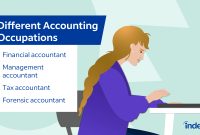Before diving into advanced strategies or outsourcing accounting services for your small business, it’s essential to understand the basics. Accounting is more than just tracking income and expenses; it’s about making informed decisions that can impact your business’s financial health.
The Role of Accounting in Business Success
Accounting plays a pivotal role in business success by offering insights that go beyond mere numbers. It provides a detailed overview of your business’s financial status, enabling you to track performance, plan strategically, and make informed decisions. Understanding these aspects can help you navigate challenges and seize opportunities for growth.
Financial Decision-Making
Effective accounting facilitates strategic financial decision-making. By analyzing financial reports, business owners can determine the profitability of different ventures, make informed investment decisions, and allocate resources efficiently. This foresight is crucial for sustaining long-term growth and stability.
Risk Management
Accounting also aids in risk management by identifying potential financial pitfalls before they become significant issues. Regular financial analysis can uncover trends that may threaten your business, allowing you to take proactive measures to mitigate risks. This proactive approach can safeguard your business’s financial health.
Choosing the Right Accounting Method
One of the first decisions you’ll need to make is choosing between cash and accrual accounting. Each method has its own advantages, and the best choice depends on your business model and goals.
Cash Accounting: Simplicity and Clarity
Cash accounting is straightforward and ideal for small businesses with simple operations. You record income when you receive cash and expenses when you pay them. This method gives you a clear picture of actual cash flow, which is particularly beneficial for businesses where cash transactions dominate. It simplifies financial tracking and provides a real-time snapshot of your financial position.
Accrual Accounting: Comprehensive Financial Picture
Accrual accounting records income and expenses when they are earned or incurred, regardless of when cash changes hands. This method provides a more accurate picture of your business’s financial health but can be more complex to manage. It allows businesses to match revenues with expenses within the same period, providing a clearer understanding of financial performance.
Hybrid Approach: Best of Both Worlds
Some businesses opt for a hybrid approach, blending cash and accrual accounting. This method allows for flexibility in financial reporting and can be tailored to meet specific needs. It provides a balanced view by offering the simplicity of cash accounting while retaining the comprehensive insights of accrual accounting.
Leveraging Accounting Software
Investing in good accounting software can save you time and reduce errors. Here are some popular options that cater specifically to small businesses:
QuickBooks: Comprehensive and User-Friendly
QuickBooks is one of the best accounting firms for small business solutions. It offers a range of features, including invoicing, expense tracking, and financial reporting, all tailored to small business needs. Its user-friendly interface makes it accessible for those without extensive accounting knowledge, allowing you to manage finances efficiently.
Xero: Versatility and Integration
Xero is known for its user-friendly interface and robust features. It integrates seamlessly with various third-party apps, making it a versatile choice for small businesses looking to expand their toolset. This integration capability allows businesses to customize their accounting ecosystem, enhancing productivity and collaboration.
FreshBooks: Ideal for Service-Based Businesses
FreshBooks is particularly suited for service-based businesses, offering time tracking, invoicing, and project management tools. Its intuitive design simplifies accounting tasks, making it easy to manage client billing and track project expenses. This specialization helps service-oriented businesses maintain organized financial records.
Outsourcing Accounting Services
Outsourcing accounting services for small business can be a game-changer, especially for entrepreneurs who want to focus on core business activities. Professional accounting firms can handle everything from bookkeeping to tax preparation.
Benefits of Outsourcing: Expertise, Time, and Cost
Outsourcing provides access to experienced accountants who understand the nuances of small business accounting. This expertise ensures accuracy and compliance, reducing the risk of costly errors. It also frees up your time to focus on growing your business, allowing you to invest energy into strategic initiatives instead of day-to-day accounting tasks. Moreover, outsourcing can be cost-effective, eliminating the need for hiring a full-time accountant and thus reducing overhead costs.
Choosing the Right Firm: Experience and Reputation
When looking for the best accounting firms for small business, consider their experience, reputation, and range of services. Research potential firms to ensure they align with your industry and business model. Don’t hesitate to ask for references or testimonials from other small business owners to gauge their reliability and effectiveness.
Building a Collaborative Relationship
Establishing a collaborative relationship with your outsourced accounting firm is crucial. Regular communication and clear expectations help ensure they understand your business needs and can provide tailored solutions. This collaboration enhances the value of outsourced services, turning them into a strategic asset for your business.
Implementing Strong Internal Controls
Internal controls are procedures and policies designed to protect your business assets and ensure the accuracy of financial records. They are vital for preventing fraud and errors.
Segregation of Duties: Preventing Fraud
Ensure that no single employee has control over all aspects of a financial transaction. For example, the person who writes checks should not be the same person who reconciles bank statements. This segregation of duties minimizes the risk of fraudulent activities and enhances accountability within your financial processes.
Regular Audits: Ensuring Compliance
Conduct regular audits to review your financial records and ensure compliance with internal controls. This practice helps identify discrepancies and areas for improvement, providing an opportunity to enhance financial accuracy and integrity. Regular audits also instill confidence in stakeholders regarding the reliability of your financial statements.
Monitoring and Evaluation: Continuous Improvement
Implement a system for monitoring and evaluating the effectiveness of your internal controls. Regular assessments allow you to adapt and refine your procedures to address evolving risks and business needs. This continuous improvement process ensures your internal controls remain robust and effective over time.
Managing Cash Flow Effectively
Cash flow is the lifeblood of any business. Effective cash flow management ensures you have enough liquidity to meet your obligations and invest in growth opportunities.
Forecasting: Anticipating Financial Needs
Create cash flow forecasts to anticipate future financial needs and identify potential shortfalls. This proactive approach allows you to make informed decisions and avoid cash flow crises. Forecasting provides a roadmap for managing finances, helping you align your cash flow with business goals and strategies.
Payment Terms: Optimizing Cash Flow
Negotiate favorable payment terms with suppliers and customers to optimize your cash flow. Offering discounts for early payments or extending payment terms with suppliers can improve your cash position. These strategies help maintain liquidity and ensure your business can meet its financial obligations without strain.
Expense Management: Controlling Costs
Implement effective expense management practices to control costs and enhance cash flow. Regularly review expenses to identify areas where savings can be made, such as renegotiating contracts or finding more cost-effective suppliers. Efficient expense management contributes to healthier cash flow and greater financial stability.
Staying Compliant with Tax Regulations
Tax compliance is a critical aspect of small business accounting. Understanding your tax obligations and staying organized can prevent costly penalties.
Record Keeping: Foundation of Compliance
Maintain accurate and up-to-date records of all financial transactions. This practice not only ensures compliance but also simplifies the tax filing process. Proper record-keeping provides a clear audit trail and facilitates accurate reporting, reducing the risk of errors and penalties.
Hiring a Tax Professional: Navigating Complexities
Consider hiring a tax professional to navigate complex tax regulations and identify potential deductions. Their expertise can save you money and prevent legal issues, ensuring compliance with all applicable tax laws. A tax professional can also provide strategic advice to optimize your tax position and enhance financial outcomes.
Staying Informed: Adapting to Changes
Stay informed about changes in tax regulations that may affect your business. Regularly review tax laws and updates to ensure your compliance strategies remain current and effective. Adapting to regulatory changes proactively helps avoid surprises and ensures your business remains on solid legal footing.
Embracing Technology
Technology is transforming the way small businesses handle accounting. From cloud-based solutions to AI-driven analytics, staying updated with technological advancements can give you a competitive edge.
Automation: Streamlining Processes
Automate repetitive tasks such as invoicing, payroll, and expense tracking to reduce errors and increase efficiency. Automation tools can also provide real-time insights into your financial performance, allowing you to make data-driven decisions quickly. Embracing automation enhances productivity and frees up resources for strategic initiatives.
Data Security: Protecting Financial Information
With the rise of digital accounting solutions, data security is more important than ever. Implement robust cybersecurity measures to protect sensitive financial information from unauthorized access or breaches. Safeguarding data integrity builds trust with stakeholders and ensures compliance with data protection regulations.
Leveraging Analytics: Informed Decision-Making
Utilize analytics tools to gain deeper insights into your financial data. Advanced analytics can identify trends, forecast future performance, and provide actionable insights to drive business growth. Leveraging analytics empowers you to make informed decisions and maintain a competitive advantage in the market.
Conclusion
Effective accounting practices are the backbone of a successful small business. By understanding the basics, leveraging technology, and considering outsourcing accounting services for small business, you can streamline your financial processes and focus on growth. Whether you’re just starting or looking to improve your current practices, these tips and tools will help you navigate the complexities of small business accounting in 2024. Prioritizing financial management not only supports compliance but also empowers you to make strategic decisions that drive long-term success.



